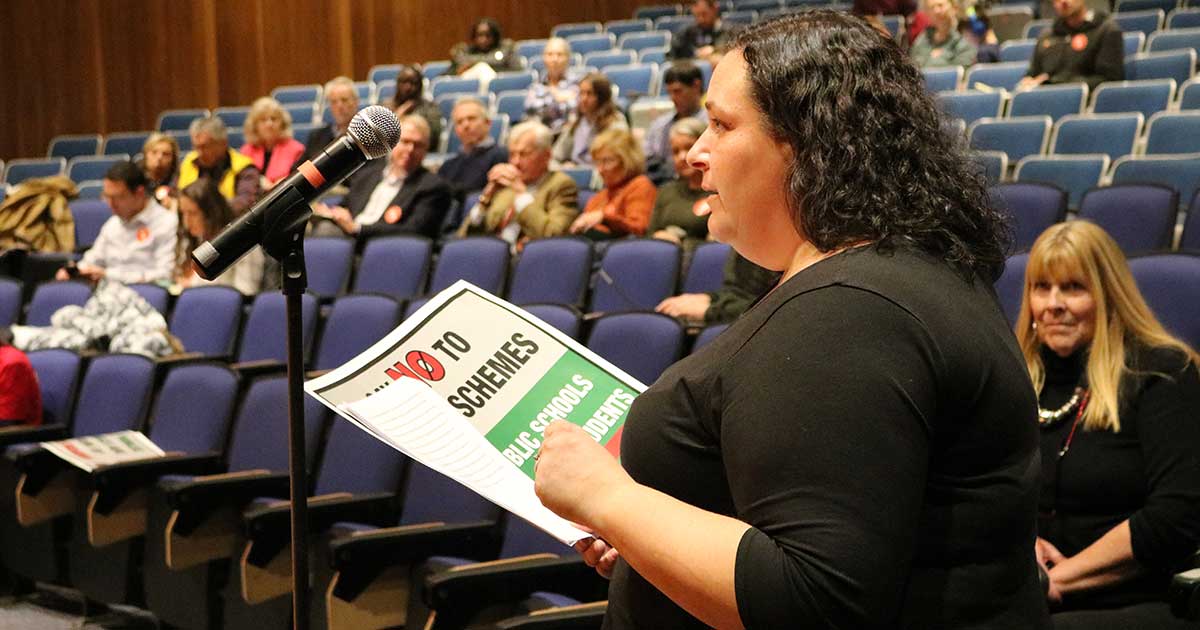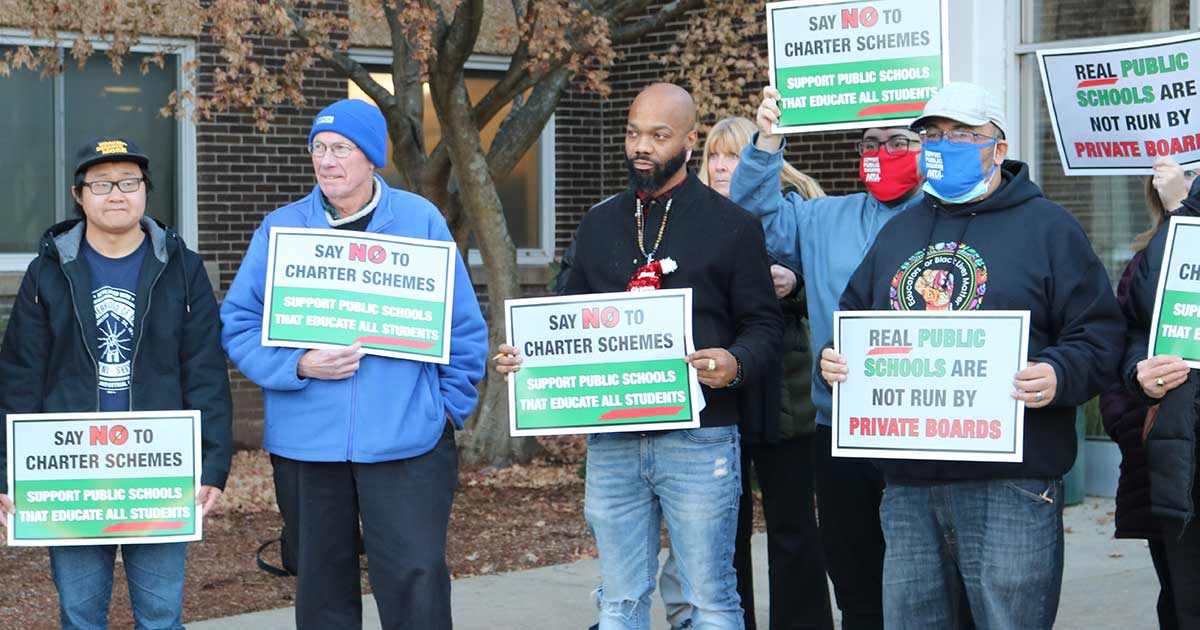Worcester charter opponents vow to continue the fight
Worcester charter opponents vow to continue the fight

Opponents of a controversial charter school approved on Feb. 28 by the Board of Elementary and Secondary Education have vowed to continue fighting the scheme launched by Old Sturbridge Village.
Though OSV cleared a major hurdle with BESE’s approving the application for its Worcester Cultural Academy, the private institution must still meet other criteria set by the state Department of Elementary and Secondary Education before it can open and start draining funds from the Worcester Public Schools.
Despite overwhelming opposition voiced at the BESE meeting, in addition to that expressed at an earlier public hearing, a 7-4 vote allowed OSV’s proposed Worcester Cultural Academy to move forward. Newly appointed state Secretary of Education Patrick Tutwiler joined BESE members Eric Plankey, Mary Ann Stewart and Darlene Lombos in voting no. After casting his vote, Tutwiler said that the proposal did not convince him that this school would be able to meet the needs of multilingual learners, and said it failed to comport with his “values of equity, access and excellence.”
The night before the BESE charter vote, the Worcester School Committee unanimously voted to request investigations by the state Auditor, Office of the Inspector General and state Ethics Commission to examine OSV’s plan to collect annual management fees that will eventually total more than $400,000.
The Educational Association of Worcester, the MTA and Worcester Public Schools officials remain hopeful that state regulators and watchdogs will recognize the many flaws in the charter plan and prevent it from opening as planned in the fall. OSV ultimately wants to enroll 360 students in kindergarten through eighth grade.
Several committee members and other opponents of the charter school drew BESE’s attention to remarks made by OSV chief executive Jim Donahue, in which he urged the privately run museum to open publicly funded “academies” as a means of revenue to offset any unexpected decreases in museum visitors.
“Hearing students referred to as a source of revenue makes me uncomfortable.”
BESE student representative Eric Plankey
Before voting no, Plankey, the student member on the board of education, said: “Hearing students referred to as a source of revenue makes me uncomfortable.”
EAW President Melissa Verdier, a special education teacher, said the Worcester Cultural Academy is ill-equipped to meet the needs of students who need supportive services and will not be a school that reflects the diversity of the Worcester Public Schools student population.
None of the cultural institutions supposedly partnering with the charter school spoke in support of the application. The EcoTarium, one often-touted “partner,” wrote to Donahue to clarify that it would work with the charter school in the very same way it works with all public and private schools in the region, downplaying any special relationship that had been inferred in the charter school’s application.
OSV currently operates a charter school in Sturbridge that enrolls students from the Southbridge area.
In addition to local officials, Worcester’s entire state legislative delegation wrote a letter to DESE opposing the charter school, backing local elected leaders who are upset that the charter will wipe out any revenue gains that Worcester schools could experience from the Student Opportunity Act.
A representative of Worcester’s branch of the NAACP, a spokesperson for a parents’ group and several members of the Worcester Public Schools administration also expressed concerns about the charter proposal.

School Committee member Sue Mailman drew attention to the charter’s plan to lease facility space from the Roman Catholic Diocese of Worcester, pointing out that the agreement stipulates the school would not teach anything in conflict with church doctrine.
MTA President Max Page lambasted the proposed charter school as undermining the will of voters who opposed charter expansion in 2016, as well as the intent of the Student Opportunity Act, passed in 2019 to address decades of state underfunding of public education. Page also said approving the charter would fly in the face of the spirit of the Fair Share Amendment approved by voters in November, which will dedicate $2 billion in new revenue annually to public education and transportation.
“We did not win these landmark victories so that this board could siphon $7 million from the real public schools of Worcester in order to fund an unnecessary, ill-conceived money-grab by a private organization interested in ‘reliable revenue streams’,” Page said. “This proposal is a fundraising gimmick cloaked in the guise of a school.”